What are we doing wrong in attracting FDI?

Foreign Direct Investment (FDI) is the holy grail of this century. Every country seeks to draw FDI and increase its share of this rare commodity. Readers need no reminder that FDI is a limited resource and is traded in a competitive market since all countries, including the significant players—Ireland, India, China, and the USA—are contenders in this chase.
Vietnam, which broke out of the clutches of foreign control only in 1975, has emerged as an economic powerhouse thanks to the influx of FDI. We can learn a lot from the path it charted out for itself since Bangladesh is strategically located in the same region with the potential to leverage not only its domestic market potential but also its proximity to India and China to become the next hub of the international supply chain, including electronics, textiles, IT, and pharmaceuticals. Once they relocate to Bangladesh, these industries could export from here, serving global markets in pharmaceuticals, technology services, medical devices, food and beverages, and financial services.
The question on everyone's mind is whether the recent troubles in our economic front will hurt our chances of attracting FDI. The recent budget has incorporated no new measures to make FDI more attractive to investors. The Fitch ratings downgraded Bangladesh's sovereign credit rating (SCR) to B+ from BB-. That will impact FDI, in addition to driving up the cost of borrowing.
The SCR downgrade did not surprise anyone, but I wanted to know what factors caused this downgrading. Does it matter to us? And how consistent have the ratings been in identifying the potential risk to investors? I wanted to find out if these credit rating agencies have considered all the information available, including political, social, economic, environmental, and financial issues. As I was exploring, I discovered that a lot of emphasis, or weight as they call it in technical jargon, is assigned to the foreign exchange balance, financial stability, and, of course, the mood of the investors in the country itself. It is also known that building stronger FDI links with the local economy through supplier development programmes and FDI linkage initiatives help decrease information gaps for investors and boosts local business opportunities.
The US Department of State, in its 2023 Investment Climate circular on Bangladesh acknowledges that the country "seeks foreign investment and offers a range of investment incentives under its industrial policy and export-oriented growth strategy." The country has already taken several measures to streamline sanctioning foreign investment. Bangladesh Investment Development Authority (BIDA) has been coordinating reform initiatives to improve Bangladesh's ranking on the World Bank's Ease of Doing Business index. BIDA has been working in collaboration with Bangladesh Securities and Exchange Commission (BSEC) to host trade shows abroad.
Unfortunately, the US has also raised the issue of anti-union activities in our industrial sector. Our own Centre for Policy Dialogue said the political economy dynamics of Bangladesh have frequently impeded substantial reforms, even when the stakeholders have acknowledged their needs.
International Finance Corporation (IFC) and other international lenders are pushing for a recognition of reforms and the development of a foundational framework to support FDI. There are three main pillars of the investment life cycle. The first pillar is investment attraction and facilitation, aiming at seizing new opportunities; the second pillar is investment retention to decrease the probability of divestment and to foster existing expansion and reinvestment of retained earnings of FDI, and the third pillar is creating FDI links with the local economy to increase the development dividend of FDI. Having said that, we need investment, or rather draw the FDI that is constantly looking for new and fertile territories. Our performance in this regard could be stronger.
"Greenfield" FDI, which involves the establishment of new production facilities and thus the creation of many new jobs, has been in consistent decline as a share of total investment. While annual announcements of new greenfield projects (that is, the future pipeline of investments) averaged more than 100 percent of gross FDI flows to developing countries before the global financial crisis, the ratio had dropped to one-half of gross flows by 2020.
Many factors attract FDI and are well-known. However, it is better said than done. In Bangladesh, several factors are favourable, including cheap labour, a welcoming government, and our well-educated young urban workers. However, last year (FY 22-23), Bangladesh attracted only $3.6 billion in FDI, which was lower than FY 21-22, a 5.5 percent decline. To put it in context, Bangladesh needs $6-10 billion of FDI annually to meet its investment needs.
Growing climate change impacts, rising interest rates, and policy changes in advanced countries—such as incentives for green investments and localisation of supply chains for critical technologies—have also had far-reaching implications for the allocation of investment across the globe.
An IFC report, "Changing Foreign Direct Investment Dynamics and Policy Responses," provides a granular analysis of shifts in FDI flows and policy trends. It suggests policy responses that developing countries may consider to reverse the decline in FDI and enable more private capital to support their development needs.
What can we do better? Why is Vietnam successful and not us? Investors feel encouraged by the political stability of a country. A business's prosperity is based on a government's favourable legislation and political goodwill. This includes having (and maintaining) a good transport and infrastructure network to help transport products and raw materials to marketplaces. The IFC report identifies the proactive initiatives by Vietnam, including a dispute resolution mechanism and other measures to improve the investment climate.
Finally, favourable tax rates will also promote investments as investors look for nations with lower corporate taxes. Ironically, a weak exchange rate is ideal for foreign investors because it is cheaper for investors and companies to buy assets.
Dr Abdullah Shibli is an economist and works for Change Healthcare, Inc., an information technology company. He also serves as senior research fellow at the US-based International Sustainable Development Institute (ISDI).
Views expressed in this article are the author's own.
Follow The Daily Star Opinion on Facebook for the latest opinions, commentaries and analyses by experts and professionals. To contribute your article or letter to The Daily Star Opinion, see our guidelines for submission.

 For all latest news, follow The Daily Star's Google News channel.
For all latest news, follow The Daily Star's Google News channel. 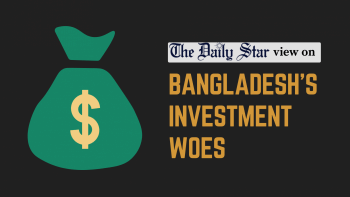
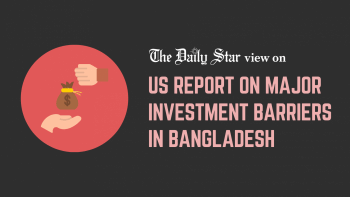





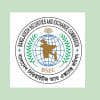
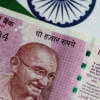
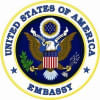


Comments